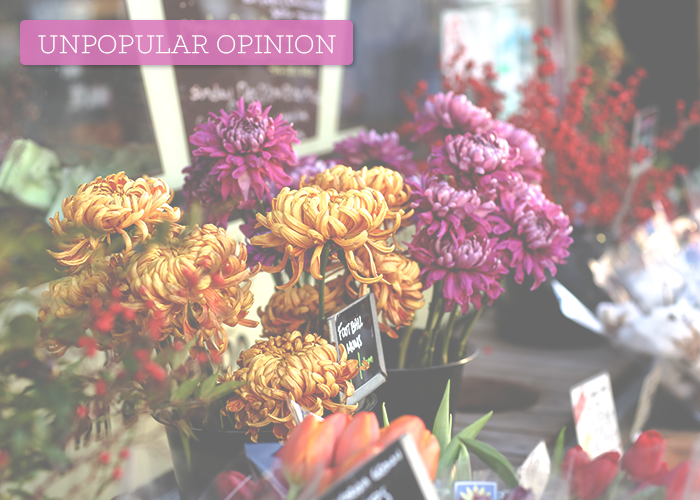Why Those “No-Spending” Challenges Are A Total Waste Of Time
I don’t know about you, but I cannot get enough of these lifestyle challenges. A 30-day cleaning challenge? My house has never looked better! Seven days of green smoothies? Hello clearer skin! My sister and I even turned a summer reading challenge into a contest where the loser buys the winner a plane ticket to come visit her. It’s an amazing way to keep in touch and gives us interesting new things to talk about. I know at their core these challenges are just an extension of the myth of instant gratification, but I have been seduced by their sleek layouts and promise of shinier hair.
However, there is one kind of challenge that sets my teeth on edge. That challenge is of course the 30-day spending freeze. This is not to criticize anyone for partaking in the challenge. If it helps you curb your spending, then more power to you. But I admit that when I read about the challenge for the first time, my only reaction was, “Hey, I’ve inadvertently done that challenge before. It’s called being poor.”
There are many valid and important reasons to go on a spending freeze: to pay down debt, to cut back hours, focus on school, and to save up enough for a well-earned vacation. But, these challenges are marketed as self-improvements, and a monk-like commitment to delayed gratification that makes you better than the people around you. Personally, I feel it’s a way for well-off people to congratulate themselves on struggles they haven’t personally experienced.
The issue I have with a 30-day spending freeze is the same one I have with voluntourism. Which, in my mind, is when unqualified college students going to economically-depressed areas to build churches, or spend six hours reading to children because it looks nice on their Instagram. Poor people aren’t making a statement when they don’t buy coffee every morning, it’s simply their reality. It is for someone who doesn’t have to worry about money to do a 33-day no spending challenge — it’s easy to give up buying a new dress for an event when you know that, in a month, you’ll be back to your old spending habits.
I think this challenge also requires a certain amount of financial and/or career flexibility. You have to be able to pay all your upcoming bills before the challenge starts, and then stock up on supplies that you’ll know you need during the freeze. It also helps if you’re able to work from home, so you can save on gas and resist the urge to buy lunch out. It is understood that if an emergency comes up, the challenge will halt, and the expenses will be paid, probably from the money you saved by not buying expensive cheeses. It is reminiscent of the soft news reporters marveling at how much weight you would lose living on $10 a day, a statement that is so out of touch with reality I thought it was a joke.
Sometimes, I wonder if these challenges appeal to me because they do away with the concept of moderation entirely. A spending freeze is similar to a crash diet in that, when it’s over, there is a manic desire to make up for what you missed out on. Real financial change is not that glamorous (or torturous). It requires budgeting, carefully tracking of your spending, and implementing cut-backs that you know you can stick to. Figuring out what you can reasonably remove from your budget should be like a science experiment where you control all the other variables. Don’t cut out everything at once, just cut out coffee first and see how that works. If you can’t part with your caffeine addiction (I am right there with you) try something different the following month. Try cooking at home, and see if that’s a sustainable change.
And, you don’t have to try just financial challenges, try lifestyle ones as well. Meditating for ten minutes a day for 30 days might be interesting, as would spending the year only reading books written by authors of color to make sure you’re consuming diverse sources of entertainment. It’s also useful to tackle and execute one of those guides about cleaning up your digital footprint, which can alert you to things online that may be affecting your employability. Doing something for 30 days is a wonderful way to break old habits and create new ones, but in my opinion, that doesn’t apply to a spending freeze. I feel strongly that when the freeze is over, your old habits will be back since you didn’t replace them with anything sustainable long term.
Ultimately, I know that my problem with this comes down to insecurity. And, to be fair, the dietary challenges are probably far more offensive from a financial point of view (there is a special ring in hell reserved for people who spent upwards of $300 on a selection of pressed juices made entirely of spinach and self-congratulation). I am just not far enough removed from my own times of financial insecurity. While my situation was entirely preventable, and definitely my own fault, that’s not the case for everyone. I waited tables with some of the hardest-working men and women I have ever met, who were born into a system that discriminates against them. I don’t have the patience to hear another person talk about how freeing it was to realize that they, too, can live without Uber. If we romanticize aspects of poverty, a practice that I am definitely guilty of doing, it takes focus away from people’s daily reality. It is not more noble not to spend money, it’s just different circumstances.
Caly is an Austin cliché who is working on her Paralegal Certificate. She has read more biographies of trashy celebrities than any feminist should, and if you have a good one send it her way.
Image via Unsplash





